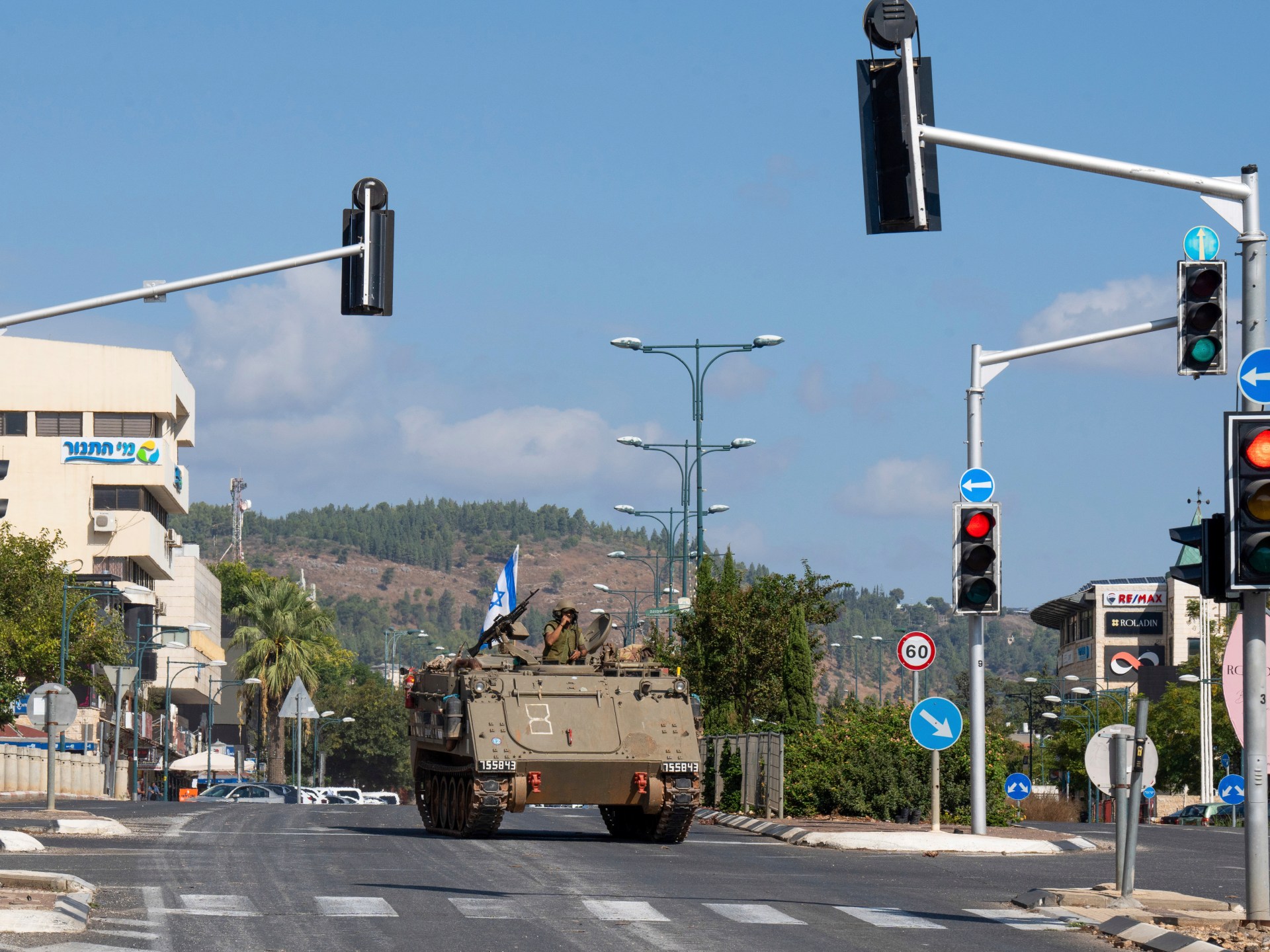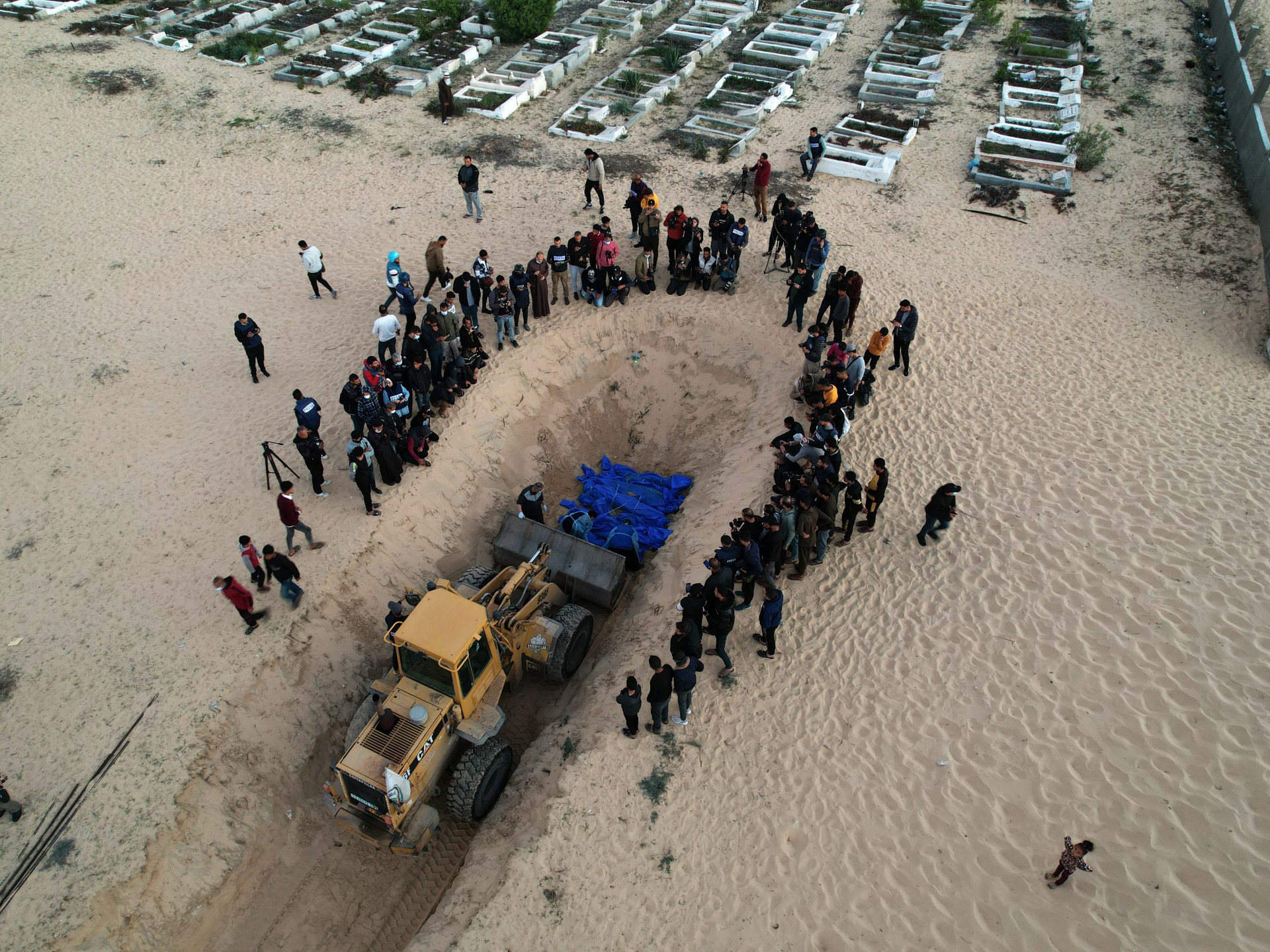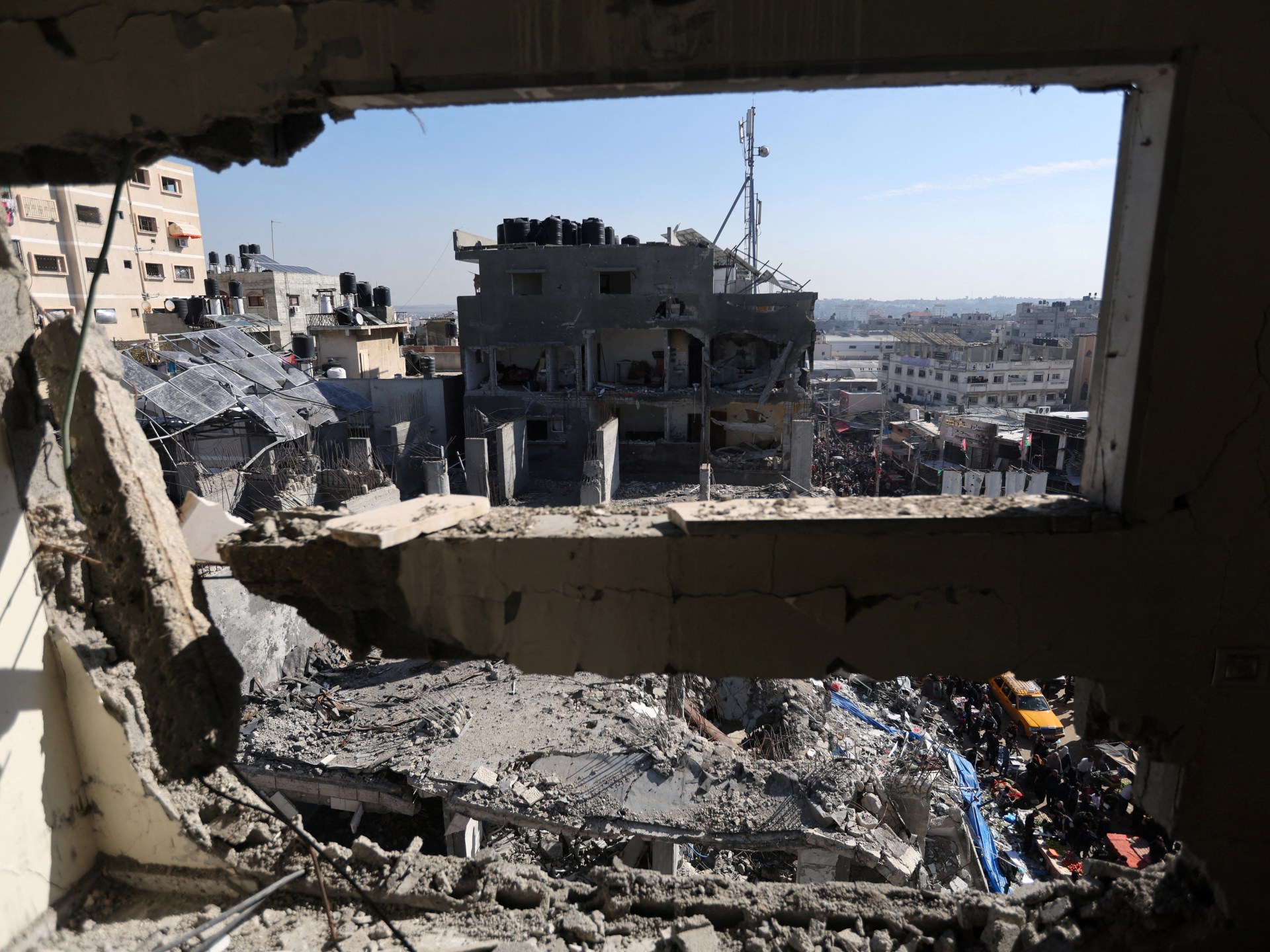
Comments from the Israeli war cabinet member are the latest to raise the possibility of escalation with Hezbollah.
Senior Israeli minister Benny Gantz says the situation on the country’s border with Lebanon “must change,” hinting at the possibility of a military escalation with Lebanon armed group Hezbollah.
Gantz, a member of the Israel Emergency War Cabinettold reporters on Wednesday that the chance of a diplomatic solution to exchanges between Israel and armed groups in southern Lebanon was quickly dwindling.
“The situation on Israel’s northern border requires change” Gantz said at a press conference.
“The stopwatch on a diplomatic solution will run out if the world and the Lebanese government do not act to prevent the shelling of Israel’s northern residents and distance Hezbollah from the border [Israeli military] will do it.”
The comments are the latest to raise concerns that Israel’s military operation in Gaza could lead to a larger regional conflict involving Iranian-backed groups such as the Gaza Strip Hezbollah.
Israel and Hezbollah, as well as a handful of smaller armed groups operating in southern Lebanon, have settled into a steady rhythm of mutual clashes since the current round of fighting between Hamas and Israel began on October 7, when the group launched an attack on southern Israel, in which more than 1,100 people were killed.
Since then, Israel has relentlessly bombed Gaza in a “genocidal” campaign, killing more than 21,000 people, most of them women and children, and displacing almost all of its 2.3 million residents.
The Israeli offensive in Gaza sparked tensions along the Israel-Lebanese border as there were reportedly intermittent exchanges of fire between Israeli forces and Hezbollah, leading to the deadliest clashes since the two sides went to full-scale war in 2006.
Tens of thousands of people in Israel and Lebanon have done so too been expelled, According to a tally by the AFP news agency, more than 150 people have been killed on the Lebanese side since the clashes began, most of them Hezbollah fighters. The agency said the figure included 20 civilians, including three journalists.
On Tuesday, a Hezbollah attack in northern Israel injured 11 people, while an Israeli attack on Bint Jbeil left people dead three peopleincluding a Hezbollah fighter.
“Israeli warplanes are currently targeting cities that are even very far from the border,” Al Jazeera correspondent Ali Hashem reported from Bint Jbeil.
“The fact is that this area is now becoming a complete war zone. It will be very dangerous and risky to move there as you always expect an Israeli drone,” he added.
To date, however, such exchanges have not occurred before the more serious confrontation that would accompany such a confrontation high costs for both sides as well as for the civilian population living in communities near the Israel-Lebanon border.
The limited nature of the fighting had allayed initial concerns about a larger war. But in recent weeks, Israeli officials have suggested they may take stronger action against Hezbollah, even as Israel’s campaign in Gaza comes under increasing scrutiny.
Israel’s Foreign Minister Eli Cohen said on a tour near the border on Wednesday that Israel could target Hezbollah leader Hassan Nasrallah, a move that would almost certainly trigger a wider conflict with the massive armed group Connections to Iran.
“We will try to make the best of the diplomatic option,” Cohen said. “If it doesn’t work out, all options are on the table.”






Recent Comments